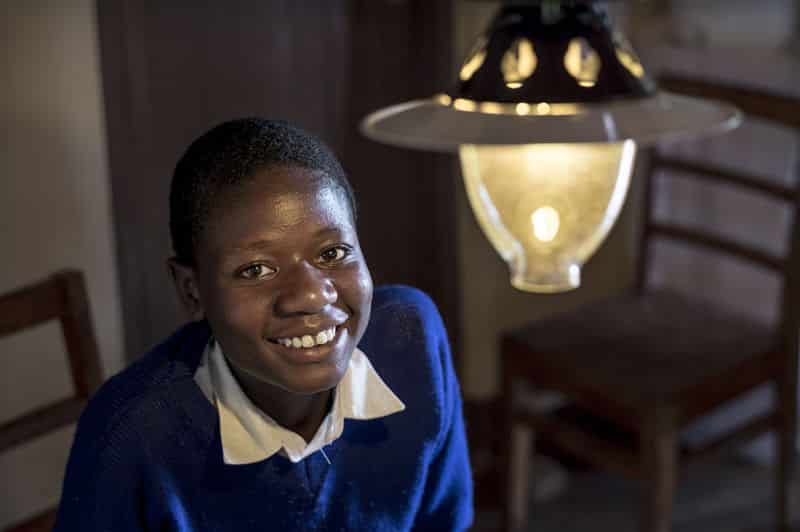Creation of biodigester markets in Africa is feasible, according to a new analysis from the Stockholm Environment Institute in collaboration with Hivos.
With support from the US National Institutes of Health and the Clean Cooking Implementation Science Network; the biogas programmes of Kenya, Tanzania and Uganda were evaluated using the RE-AIM framework, an approach that assesses Reach, Effectiveness, Adoption, Implementation and Maintenance. The results have been published as an open-access article in the Elsevier journal Energy for Sustainable Development.
Clean air is vital for human survival. The World Health Organization (WHO) states that Household Air Pollution (HAP), caused by something as basic as cooking on solid (wood)fuels, takes over 2.6 million lives each year; more than HIV/AIDS and tuberculosis combined. Household air pollution has been called the ‘silent killer’ taking mostly women and children before their time.
Scalable solutions to address household air pollution are still scarce. A report from International Energy Agency, International Renewable Energy Agency, World Bank and World Health Organization published in May 2018 shows that we are not on track to achieve targets for clean cooking in SDG7 by 2030. On the contrary: it is projected that by 2030, with current interventions, the increase in Sub-Saharan African households gaining access to clean fuels will not keep pace with population growth. In other words, more people will use polluting fuels like firewood and charcoal in 2030 than in 2015.
Biogas is one potential solution to combat household air pollution and promote clean cooking in Africa, particularly for rural households. Before 2007, the use of biodigesters in Africa was very limited. Compared to Asia, economic and financial conditions in Sub-Saharan Africa are less favorable: raw materials and credit are more expensive and people have less disposable income. Nevertheless, the Africa Biogas Partnership Programme (ABPP), established in 2009, shows a proof of principle for the creation of biodigester markets in East Africa.
The new research by SEI and Hivos was conducted to systematically review the experience of ABPP in Kenya, Tanzania and Uganda. Demand for biodigesters has been demonstrated and new enterprises are entering the market, especially in Kenya. The ABPP country programmes in East Africa have been dynamic and adaptive, moving along the cycle of market development. Notwithstanding high upfront cost and limited access to credit, over 27,000 households adopted biogas (half of them in Kenya). This is substantial growth considering that by 2009, only Tanzania had more than 1,000 functioning biodigesters.
The evaluation of ABPP in Kenya, Tanzania and Uganda finds that biogas is a feasible and scalable means of promoting clean cooking and household air pollution reduction in rural Sub-Saharan Africa. Surveys indicate that households perceive direct benefits such as higher crop yields (because of the use of bio-slurry, a second product of a bio-digester), reduced fuel consumption, and -depending whether the family collects or purchases fuel,- substantial savings in time or money, as well as cleaner and more convenient cooking. In addition, fuel consumption tests show households with biodigesters use 2.1 to 3.3 tonnes less wood per year than similar households without biodigesters.
Besides showing the potential for biogas as a scalable solution to promote clean cooking in East Africa, the analysis also identifies challenges. Market conditions in Africa for the adoption of bio-digesters are challenging because of high costs of raw materials, low level of household income and lack of credit access. Furthermore, while half of the adopters in Kenya exclusively use biogas for cooking, in Uganda and Tanzania 70-90 per cent of biogas users continue to use firewood for cooking some of their meals. This “stacking” of solid fuels with biogas leads to continued air pollution and makes it more difficult for ABPP to deliver health and environmental benefits. To stimulate adoption and sustained use of biogas as a scalable solution in Africa, deeper engagement with governmental and non-governmental stakeholders is needed. Furthermore, the international community and policy makers should promote long-term financial commitment and enabling policies.
With the new analysis of biodigester market development in East Africa, using the RE-AIM framework as an analytical tool, researchers from SEI and Hivos conclude that biogas is a viable, scalable solution to promote clean cooking among a segment of the rural population. The research will help to increase action towards achieving the environmental and health goals for clean cooking in SDG7 by 2030.
About Africa Biogas Partnership Programme
With presence in more than five African countries: Kenya, Tanzania, Uganda, Ethiopia and Burkina Faso, ABPP is the largest biogas programme in Africa. ABPP is a partnership jointly executed with Hivos as fund manager and SNV as technical adviser and supported by the Dutch Government.
About the U.S. Center of the Stockholm Environment Institute
The U.S. Center of the Stockholm Environment Institute conducts research and engages with decision-makers and civil society on energy, water, and climate policy as well as on broader dimensions of development, sustainability, and equity. It builds capacity through training and collaboration, and its decision-support tools are used widely around the globe.
This article was originally published on Hivos website and can be accessed here.







